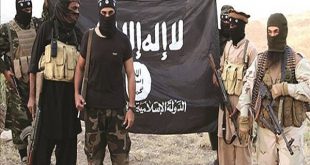Head of the Atomic Energy Organization of Iran (AEOI) Muhammad Eslami on Sunday highlighted Tehran’s remarkable progress in the nuclear industry. He said the achievements in the high-tech field have been accomplished under the threats and sanctions by the enemies.
Eslami made the statement before the launch of an exhibition showcasing Iran’s latest achievements in the nuclear industry at Tehran’s Imam Khomeini Husseinieh.
“These achievements were made under heavy threats and sanctions from the enemies,” Eslami said. “Achieving complex nuclear technologies in such difficult conditions has not been easy whatsoever, but our country’s young scientists achieved them without using foreign capacities.”
Pointing to the AEOI’s goal of manifesting the effects of nuclear energy in society and people’s lives, Eslami said, “The fields of health, medicine, food security and agriculture, industry, water and soil and environment have been discussed in the exhibition, and the achievements of these sectors are introduced.”
Iran’s nuclear chief underscored the use of nuclear energy in people’s daily lives and said the central part of the issue are power plants and the production of atomic electricity, which is being used by world countries as a source of clean energy.
Pointing to radiation as one of the most important parts in the field of nuclear energy, which can be used in medicine, Eslami said, “Radiopharmaceuticals are widely used in the medical field; every year, about one million patients benefit from radiopharmaceuticals that are produced by atomic energy in the field of diagnosis and treatment, especially for cancer.”
The head of the AEOI also said replacing radiation to combat agricultural and food pests is one of the most important achievements of atomic energy for public use.
“The use of radiation in agriculture has two features; it gives health as a gift to the society because pesticides will not be used in agriculture, and of course, it prevents agricultural runoff and waste,” Eslami added.
The nuclear chief also said the use of radiation in agricultural products would increase the export of such products. “We will no longer see pests in the agricultural sector.”
In separate remarks published on Saturday, Eslami said the purpose of enriching uranium to a high level of purity was the removal of anti-Iran sanctions.
In an interview with Tehran-based Ettelaat newspaper, Eslami said a December 2020 parliamentary law — dubbed the Strategic Action Plan to Counter Sanctions — was also passed with the same purpose.
He said the AEOI is enriching uranium to the purity level of 60% in accordance with the parliamentary law for different purposes, including the production of radiopharmaceuticals and detectors.
“We used 60% enriched uranium in the production of fuel plates and especially raw materials for the
production of radiopharmaceuticals such as molybdenum,” the Iranian nuclear chief said.
Back in December, the AEOI spokesman Behrouz Kamalvandi said Iran’s enrichment of uranium had officially reached the purity level of 60 percent in accordance with the parliamentary law seeking to accelerate the development of the Iranian nuclear program.
Under the parliament’s law, the Iranian administration is required to restrict the International Atomic Energy Agency’s (IAEA) inspections and accelerate the development of the country’s nuclear program beyond the limits set under the 2015 nuclear agreement, such as ending the voluntary implementation of the Additional Protocol to the nuclear Non-Proliferation Treaty (NPT).
Eslami further pointed to claims that Iran’s nuclear program pursues military purposes and said the AEOI’s main goal is to implement the parliamentary law which is aimed at convincing or obliging the opposite sides to “reduce the cruel economic sanctions against Iran.”
The Iranian nuclear chief added that the AEOI is carrying out its activities based on national objectives and the IAEA rules, emphasizing that the country’s nuclear work is under the UN nuclear agency’s surveillance.
He criticized the JCPOA parties for failing to remain committed to the agreement, saying, “They did not even allow others to work with the Islamic Republic.”
Asked whether the recent agreements between Iran and the IAEA contradict the nation’s parliamentary law, Eslami said the agency insists that its cooperation with Tehran hinge on the implementation of the nuclear Non-Proliferation Treaty (NPT) and the IAEA Safeguards Agreements.
“We are fully coordinated and committed to these two axes emphasized by the agency and have had no inconsistencies according to the [IAEA] inspections,” he said.
He said the UN Security Council has also authorized the IAEA to carry out special supervision and set limitations on Iran’s nuclear activities under the Resolution 2231, which endorses the JCPOA.
According to the law of strategic action, when none of the JCPOA signatories fulfill their obligations, “it is natural that we do not fulfill them either”, Eslami added.
 صراط عشق صراط عشق
صراط عشق صراط عشق




